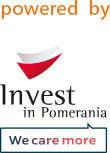Every region has their favourite or unique sayings, phrases or words that leave foreigners speechless or are impossible to translate. They may seem random but usually, they have a deeper meaning to them. Here are just a few of them.
Polish Sayings
Damy radę!
translation: we'll get through this!
There is hygge, lagom and lykke. All describing a calm state of mind, a simple way of living. As Poles, we have decided to go with something along the lines of „it will all work out somehow”. It’s cozy and has a positive ring to it, won’t you agree? When something goes wrong, Polish people tend to say „damy radę” (we will get through this). Which means that everything will be okay (eventually). And if not, then at least… we can live with it. Even though it might be misinterpreted as Poles just believe in living in the moment.
Kombinować/ załatwić
translation: to contrive/ get something done
This is from an era in Polish history when things were not easily accessible and bureaucracy reigned supreme! Kombinować means contriving by whatever means necessary to get something done and załatiwć means doing someone a favor (usually by having access or means that other don’t have).
Odgrzewany kotlet
translation: a reheated cutlet
It’s often used when someone attempts to revive interest in an issue that has no substance or should long have been forgotten. Basically a reheated food doesn’t taste good. It’s somewhat deeply rooted in Polish culture as kotlet schabowy (breaded pork cutlet) was and probably still is a staple of Sunday dinners in Polish households.
Polish Proverbs
There is a lot of proverbs that have their equivalents in the English language, but here are some which have no direct translation.
Jak się nie ma, co się lubi, to się lubi, co się ma
translation: if you don't have what you like, like what you have
This common-sense bit of wisdom hardly needs any explanation. It also has origins from times of communism in Poland. When it was difficult to acquire various things you had to go by with what you had. This proverb holds meaning even today.
Kto pod kim dołki kopie, ten sam w nie wpada.
translation: He who digs pits for others will fall in them himself
The scheme will always turn against the schemer. This proverb could be considered a more pessimistic version of ‘what goes around comes around.’ The latter suggests that good karma can also come back to you. The Polish version focuses on the bad things that can come back to haunt you.
Pańskie oko konia tuczy
translation: The Master's eye makes the horse fat
This old proverb states that looking (pun intended) after your possessions will bring good results.
Nie mój cyrk, nie moje małpy
translation: not my circus not my monkeys
You’ve probably heard someone saying this Polish proverb. It makes people laugh at first, but in fact, it has a deeper meaning! When someone uses it, it means that they don’t want to get involved in a problematic situation. This proverb is quite popular in the English language probably because of how funny it sounds. It found it’s way to pop culture:
Bonus content
Let’s continue on the phenomenon of Polish proverbs in western pop culture. This one comes in the form of a true gem from the 1970’s TV crime series called Banacek. The main protagonist who is a freelance insurance investigator of Polish origins regularly uses supposedly Polish proverbs, that are totally absurd, like:
- Only someone with nothing to be sorry about smiles at the rear of an elephant. – Tylko ktoś, kto niczego nie żałuje może uśmiechnąć się na widok zadku słonia.
- A duck with three wings and a loaf of bread is a brother to the turkey. – Kaczka z trzema skrzydłami i bochenkiem chleba jest bratem indyka.
- Though the hippopotamus has no stinger in his tail, a wise man would rather be sat on by a bee. – Chociaż hipopotam nie ma żądła w ogonie, mędrzec wolałby zostać przygnieciony przez pszczołę.
There is an abundant treasure trove of Polish proverbs one can sure learn some important life lessons from them. Do you have a favourite one? Share them with us and we will update the list in the future!






